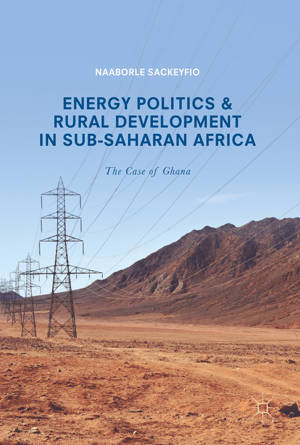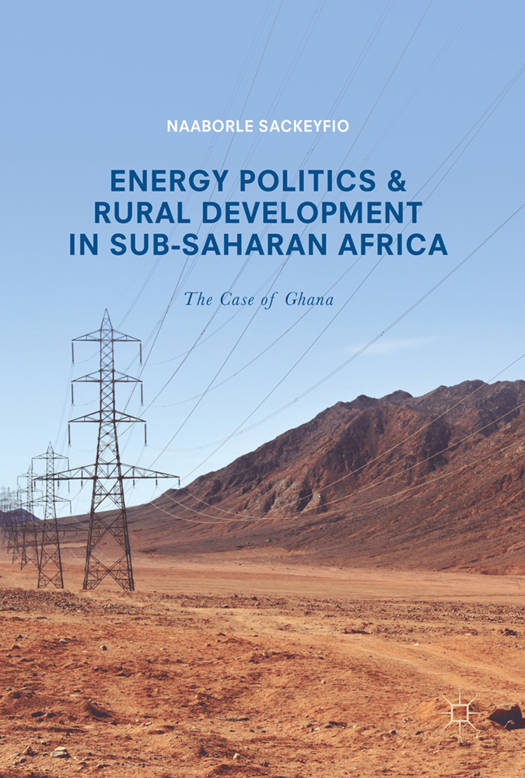
Door een staking bij bpost kan je online bestelling op dit moment iets langer onderweg zijn dan voorzien. Dringend iets nodig? Onze winkels ontvangen jou met open armen!
- Afhalen na 1 uur in een winkel met voorraad
- Gratis thuislevering in België vanaf € 30
- Ruim aanbod met 7 miljoen producten
Door een staking bij bpost kan je online bestelling op dit moment iets langer onderweg zijn dan voorzien. Dringend iets nodig? Onze winkels ontvangen jou met open armen!
- Afhalen na 1 uur in een winkel met voorraad
- Gratis thuislevering in België vanaf € 30
- Ruim aanbod met 7 miljoen producten
Zoeken
Energy Politics and Rural Development in Sub-Saharan Africa
The Case of Ghana
Naaborle Sackeyfio
Hardcover | Engels
€ 105,45
+ 210 punten
Uitvoering
Omschrijving
This book addresses the paradox of uneven electricity in one of the fastest growing and now petro rich economies, Ghana, by addressing the question of why one of the most hydro rich countries in sub-Saharan Africa produces irregular access for all but 'swing' voter regions of the country. The book questions why targeted rural electricity initiatives over the course of the last two decades have yielded uneven benefits for what is a substantial portion of the country's population. Using Ghana as an emblematic case-study that speaks to broader regional concerns, including those of Nigeria and South Africa, this book contextualizes the variegated nature of how power sector reforms could not be undertaken without significant political costs. Indeed, the book situates an unfolding political landscape that prompted the successful but partial implementation of power sector reforms in part prompted by the Washington consensus and undergirded by a shrinking role for the state in the widereconomy.
Specificaties
Betrokkenen
- Auteur(s):
- Uitgeverij:
Inhoud
- Aantal bladzijden:
- 193
- Taal:
- Engels
Eigenschappen
- Productcode (EAN):
- 9783319601212
- Verschijningsdatum:
- 17/10/2017
- Uitvoering:
- Hardcover
- Formaat:
- Genaaid
- Afmetingen:
- 148 mm x 210 mm
- Gewicht:
- 489 g

Alleen bij Standaard Boekhandel
+ 210 punten op je klantenkaart van Standaard Boekhandel
Beoordelingen
We publiceren alleen reviews die voldoen aan de voorwaarden voor reviews. Bekijk onze voorwaarden voor reviews.











